10 | The Search for Planet X
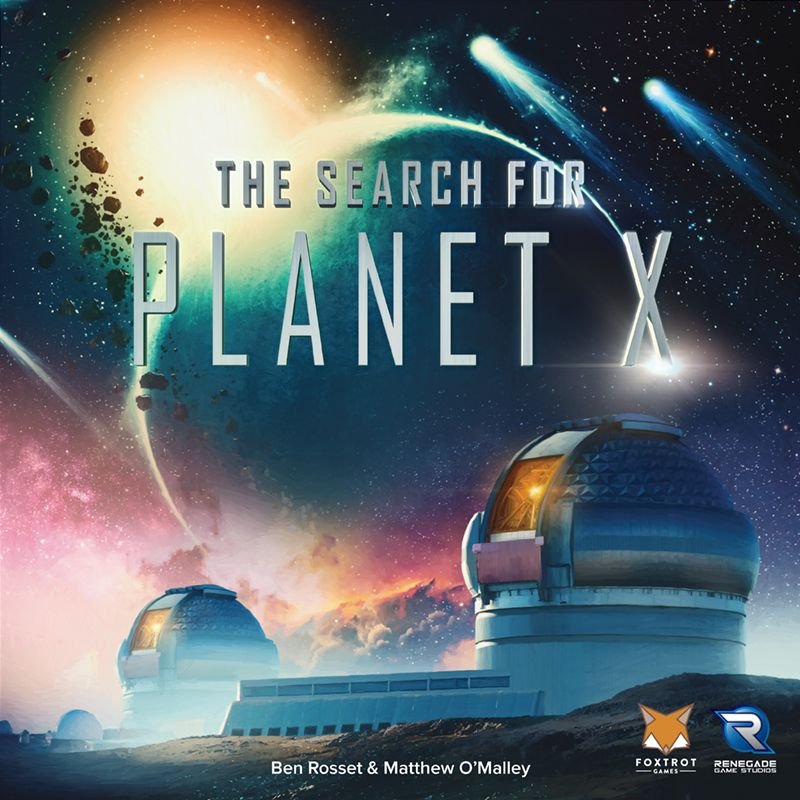
Starting off our list at number 10 is The Search for Planet X, a deduction-based board game that puts you in the role of an astronomer. The game is all about using logic and scientific research to locate a mysterious hidden planet in our solar system. Its core mechanics revolve around players taking actions to survey the sky, publishing their findings, and gaining valuable clues to narrow down the possible locations of Planet X. The game is played on a circular board representing different sectors of the sky, and through a companion app, new information is generated each round, keeping the experience fresh and unpredictable.
Players have praised The Search for Planet X for its deep strategic thinking and the satisfying “Eureka!” moments when key deductions are made. Despite its simplicity, the game offers a tense and engaging puzzle that makes each round feel rewarding. The blend of science, logic, and app integration has made it a favorite among fans of cerebral, deduction-heavy games. It’s been particularly well-received for its balance between accessibility and depth, providing a satisfying experience for casual gamers and hardcore strategists alike.
9 | Race for the Galaxy
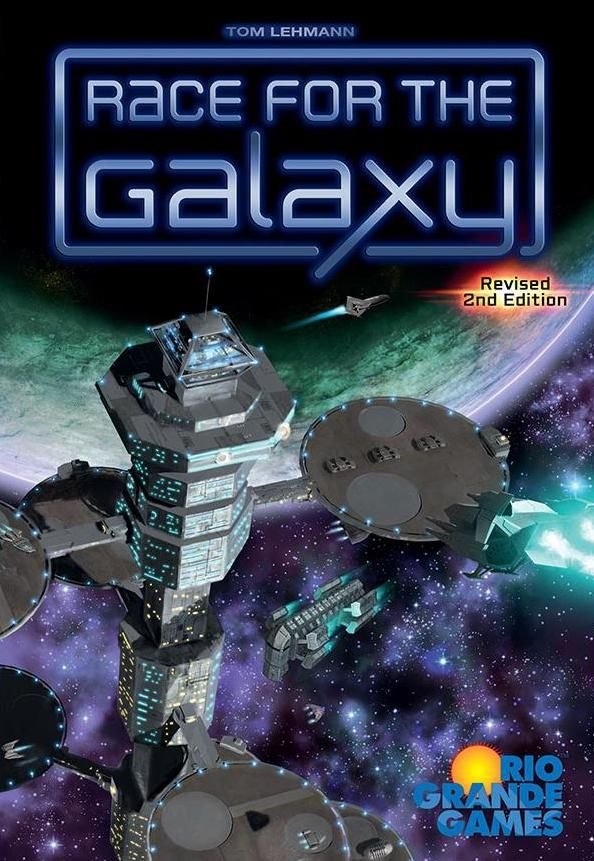
Race for the Galaxy, released in 2007, is a dynamic, card-driven game that throws players into the role of space empire builders. The game’s core mechanics center around simultaneous action selection, where each player chooses a specific phase to activate, such as exploration, development, or production. The brilliance of the system lies in how it rewards not just the active player but also others if they’ve prepared for the same phase. This creates a strategic depth as you not only focus on building your empire but also on predicting your opponents’ choices. Additionally, the game involves card management, with cards serving as resources, technologies, and planets, giving players a multitude of options to expand their galactic reach.
The reception of Race for the Galaxy has been overwhelmingly positive, especially among those who enjoy complex and strategic games. Players appreciate the fast pace and the deep learning curve, with each playthrough revealing new layers of strategy. The intricate icons can be a barrier for beginners, but once grasped, the gameplay becomes highly rewarding. It’s a staple for fans of space-themed tabletops who love building, optimizing, and outwitting their opponents.
8 | The Crew: The Quest for Planet Nine
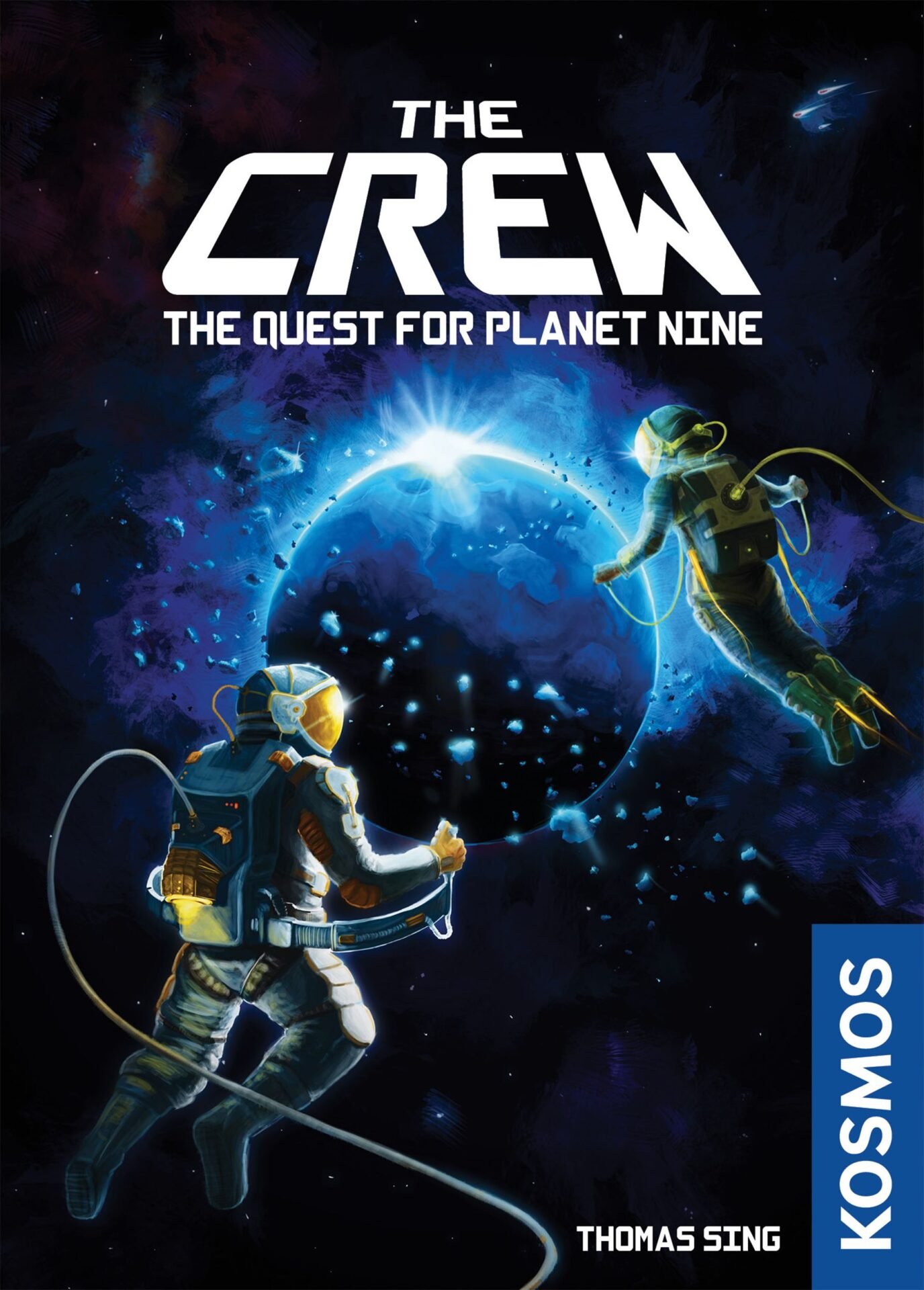
In The Crew: The Quest for Planet Nine, you and your fellow players embark on a cooperative journey through space, working together to complete a series of missions. What makes this game unique is its use of trick-taking mechanics, a classic card game feature, combined with a narrative-driven campaign that unfolds over 50 increasingly challenging scenarios. As a team, you’ll need to communicate efficiently, but here’s the twist: communication is limited, simulating the difficulty of interstellar coordination.
Players have praised The Crew for its clever blend of familiar mechanics and innovative teamwork. Its accessible rules make it easy to pick up, yet the game’s strategic depth keeps experienced players coming back for more. Many have found it to be a refreshing twist on the space exploration theme, with a high replay value due to the variety of mission objectives. The game has earned a strong reception, winning awards and capturing the hearts of both casual and dedicated board gamers alike.
7 | On Mars
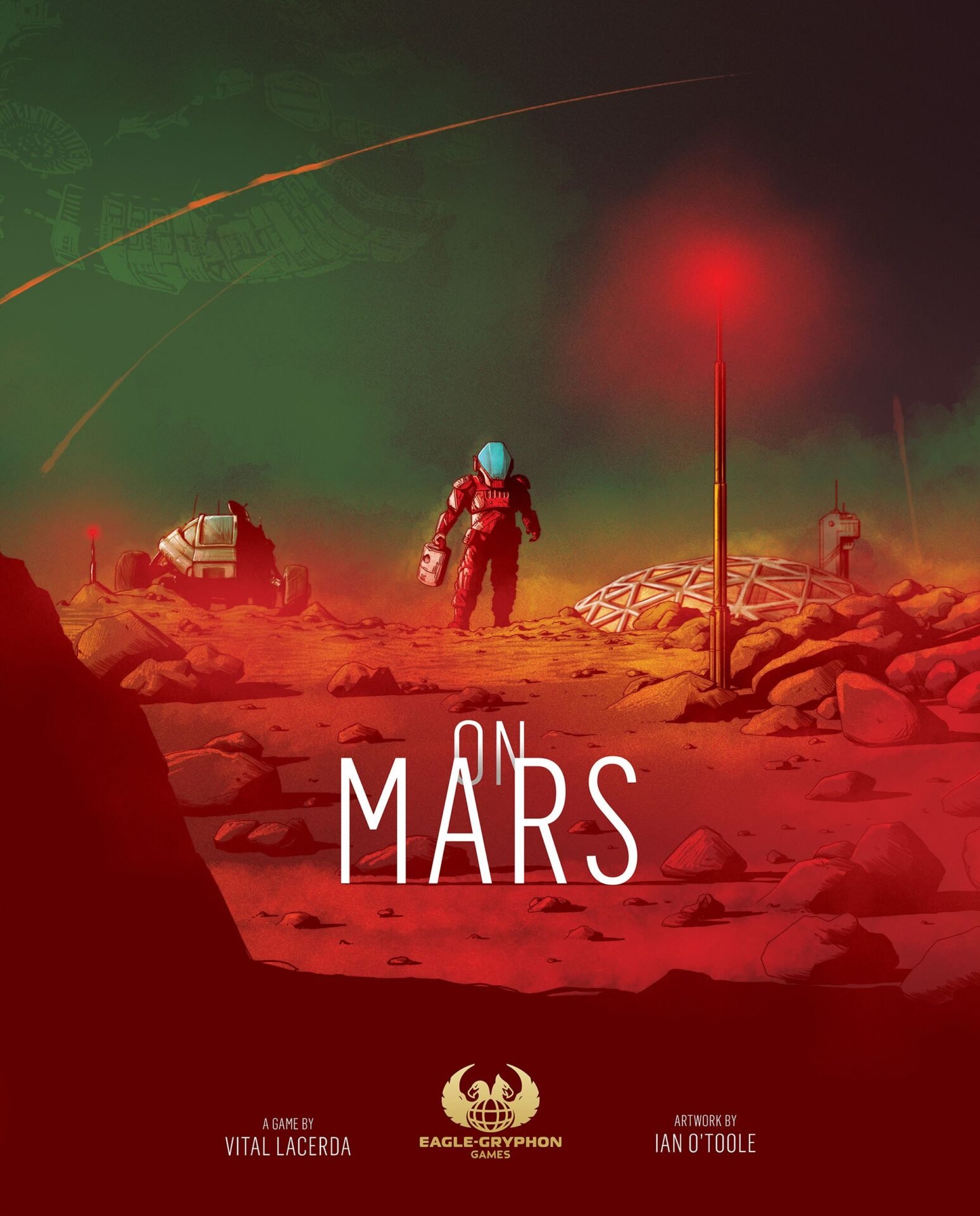
On Mars is a highly strategic game where players take on the roles of astronauts tasked with colonizing the Red Planet. The game’s core mechanics center around worker placement and resource management, with a complex blend of mission planning and building a sustainable colony. You’ll be coordinating the transportation of materials from Earth, constructing habitats, and researching vital technologies to thrive in the harsh Martian environment.
Praised for its depth and challenging gameplay, On Mars offers a rich solo experience and becomes even more dynamic in multiplayer. Players have lauded its intricate systems and replayability, though some note its steep learning curve. Its reception has been overwhelmingly positive among enthusiasts of heavier strategy games, making it a must-play for anyone seeking an immersive space-themed tabletop experience.
6 | Nemesis
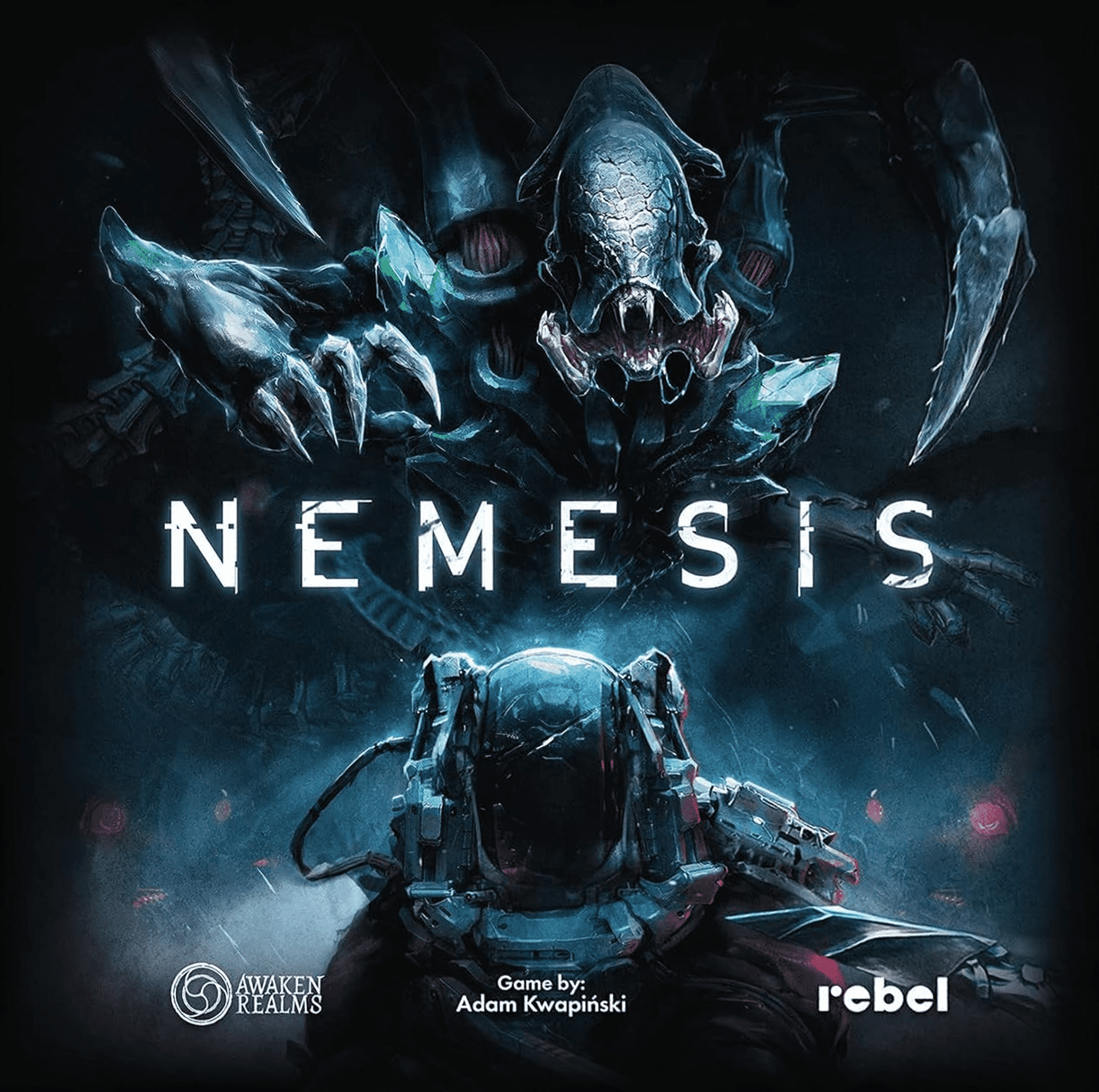
Nemesis is an intense and immersive semi-cooperative game that perfectly captures the tension of a sci-fi horror setting. Inspired by films like Alien, players find themselves aboard a damaged spacecraft, where they must complete personal objectives while evading dangerous alien creatures. The game’s core mechanics center around exploration, hidden objectives, and survival. Each player controls a unique character with specific abilities, navigating rooms, gathering resources, and managing threats. Combat is often a last resort, as players must balance between collaborating to stay alive and pursuing their secret goals, which might involve betrayal.
The reception to Nemesis has been overwhelmingly positive, with players praising its thematic depth and edge-of-your-seat tension. The beautifully designed miniatures and high-quality components further enhance the experience. Its unpredictable nature, where no two games feel the same due to the variable objectives and the alien behavior system, keeps players coming back for more. However, the game’s complexity and long playtime can be daunting for newcomers, but for those seeking a thrilling space survival game, Nemesis delivers in spades.
5 | Eclipse: Second Dawn for the Galaxy
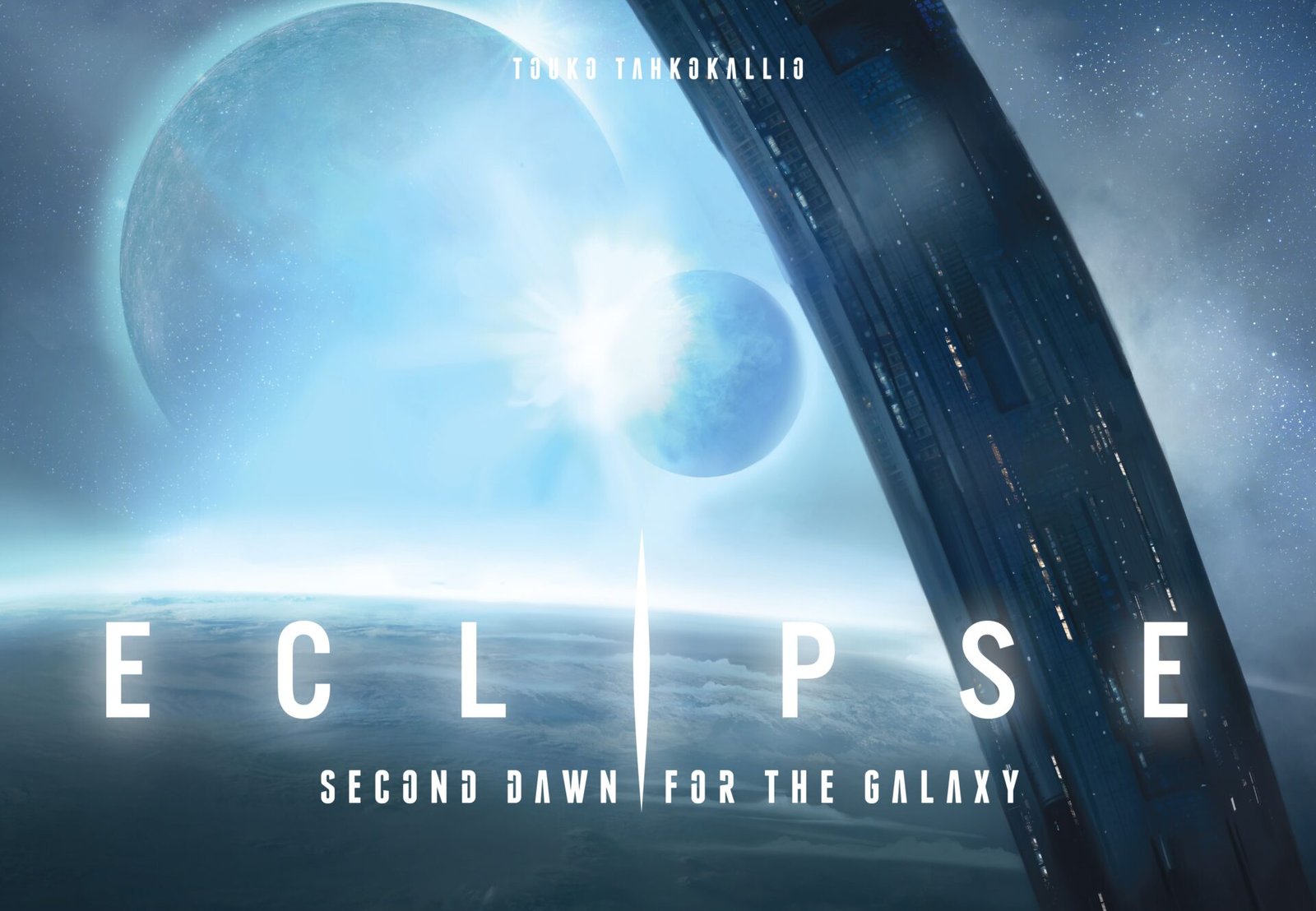
Eclipse: Second Dawn for the Galaxy delivers an epic, space-based 4X experience—explore, expand, exploit, and exterminate. Set in a galaxy teeming with conflict and discovery, players represent vast interstellar civilizations vying for dominance. Its core mechanics are based on strategic decision-making, resource management, and space combat. You’ll expand your empire by discovering new systems, researching advanced technologies, and assembling fleets for massive battles. The modular board creates dynamic gameplay, ensuring each session feels unique.
Player reception has been highly positive, praising its streamlined mechanics compared to the original Eclipse and its beautifully upgraded components. Many highlight the balance between strategic depth and accessibility, making it an engaging game for both veteran 4X players and those newer to the genre. Its combination of diplomacy, warfare, and resource economy keeps players engaged across hours of gameplay.
4 | Gaia Project
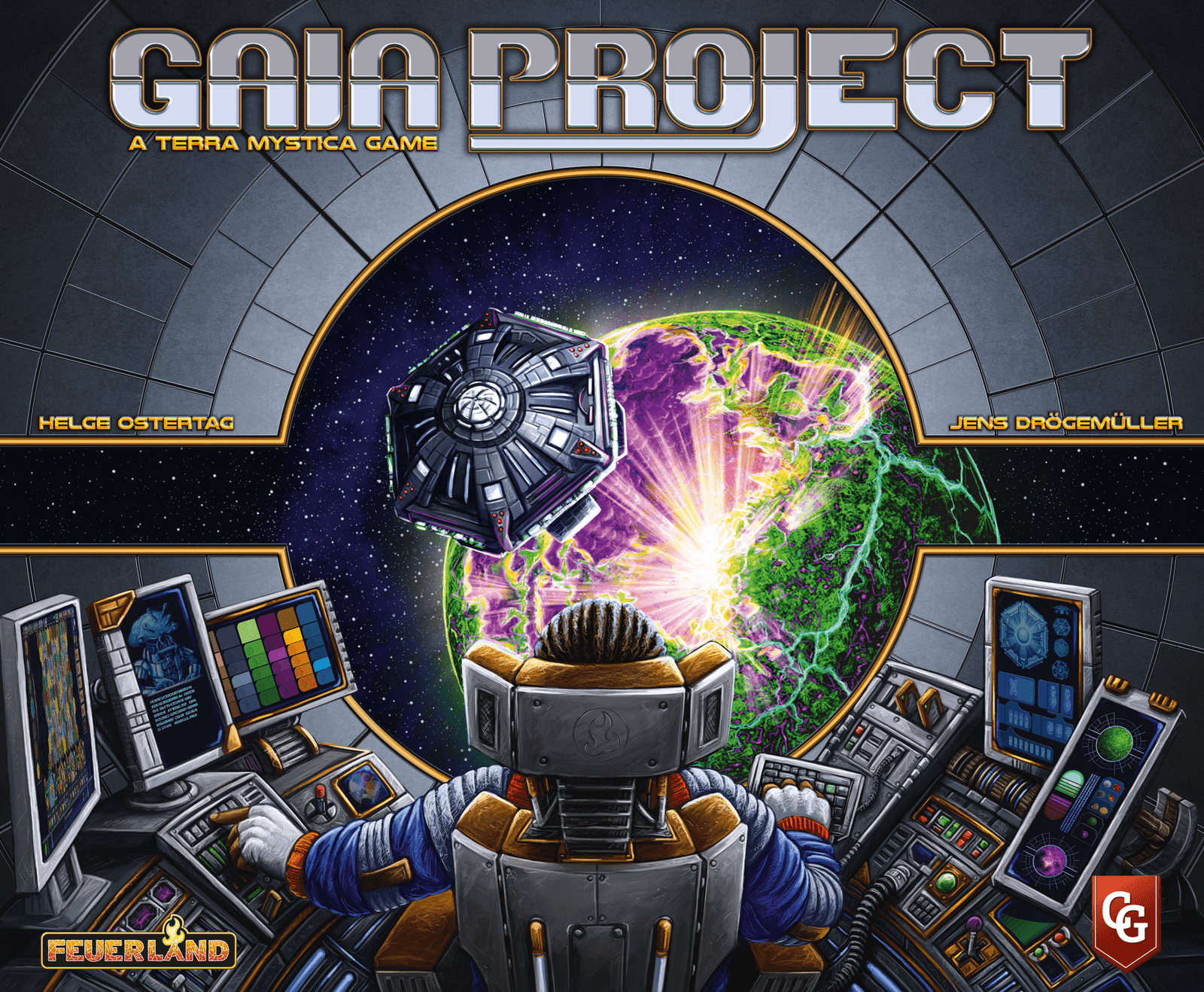
Gaia Project is a spiritual successor to Terra Mystica, bringing its intricate engine-building and area control mechanics into the vastness of space. Players lead one of 14 unique factions, each with their own abilities, to expand across different planets, terraform them, and harness their resources. The core mechanics revolve around resource management, tech advancements, and strategic area control. One of the standout features is the modular board, ensuring each game offers a fresh and varied experience. The tech tree system is another key element, allowing players to upgrade their civilization’s capabilities, offering multiple paths to victory.
Upon its release, Gaia Project was met with critical acclaim and embraced by fans of heavy strategy games. Players appreciated the deep level of strategic planning and the countless decisions that needed to be made, making each game a complex puzzle. The game’s balance, faction asymmetry, and high replayability were praised, positioning Gaia Project as a modern classic in the genre of space-themed tabletop games. It continues to have a dedicated player base and remains a favorite in competitive tabletop gaming communities.
3 | Star Wars: Rebellion
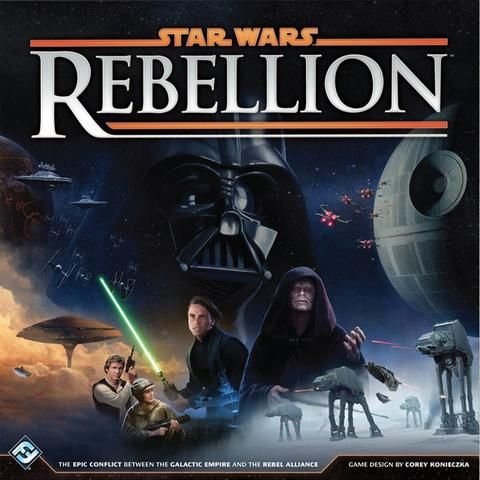
Star Wars: Rebellion brings the galactic conflict between the Empire and the Rebellion to life in an epic strategy tabletop experience. Designed for 2 to 4 players, the game combines tactical combat, character-driven missions, and resource management in a dynamic, asymmetric format. Players can either control the powerful Galactic Empire, commanding fleets, building the Death Star, and hunting down the Rebel base, or take on the role of the Rebel Alliance, launching covert missions and trying to ignite uprisings across the galaxy. The core mechanics center around action selection, dice-based combat, and hidden movement, creating an intense and immersive experience as players strategically balance military operations and secret missions.
Star Wars: Rebellion has been met with praise from both casual and hardcore tabletop gamers. Its ambitious scale and deep thematic elements have been especially well-received, making it feel like a cinematic retelling of the original trilogy. Fans appreciate the tension that builds as the Rebels attempt to outmaneuver the Empire, while the Empire’s overwhelming force provides an exciting challenge. Despite the game’s complexity, its blend of strategic depth and thematic immersion has earned it a place as one of the best space-themed tabletop games, especially for fans of the Star Wars universe.
2 | Terraforming Mars
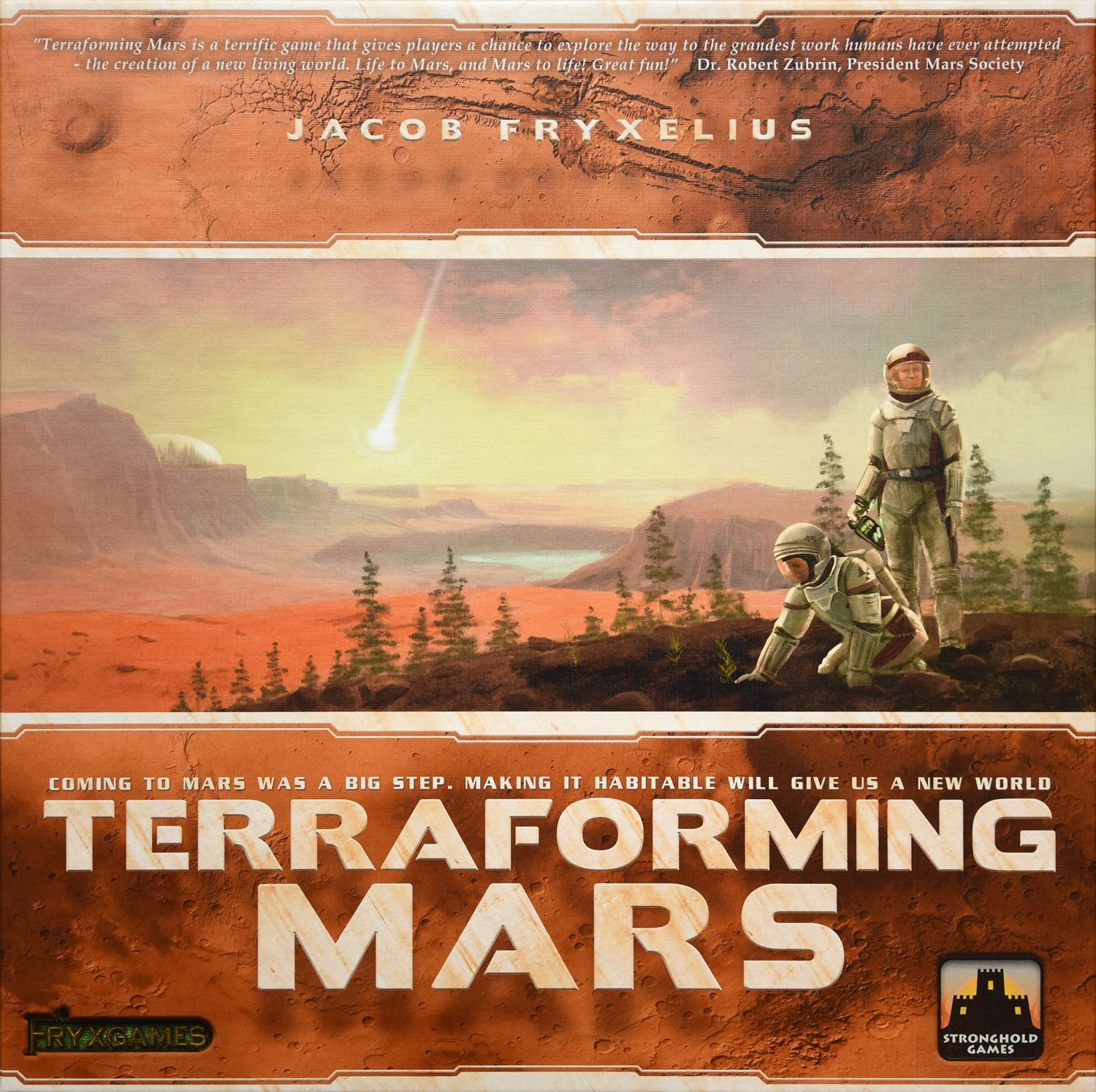
Terraforming Mars, released in 2016, is a strategic game that puts you in the role of a corporation competing to make Mars habitable for humanity. The core mechanics revolve around resource management, engine building, and card drafting. Each player has a unique corporation with its own abilities and resources, and you must strategically use project cards to raise the planet’s temperature, oxygen level, and ocean coverage. The game incorporates a delicate balance of cooperation and competition as players must work together to terraform the planet while trying to outscore each other.
The reception from players has been overwhelmingly positive. Terraforming Mars is celebrated for its deep strategic gameplay, immense replayability, and thematic immersion. The combination of various strategies, including card combinations and player interaction, makes every playthrough unique. It has earned a place in the top tier of board gaming and is frequently cited as one of the best space-themed games ever made.
1 | Twilight Imperium: Fourth Edition
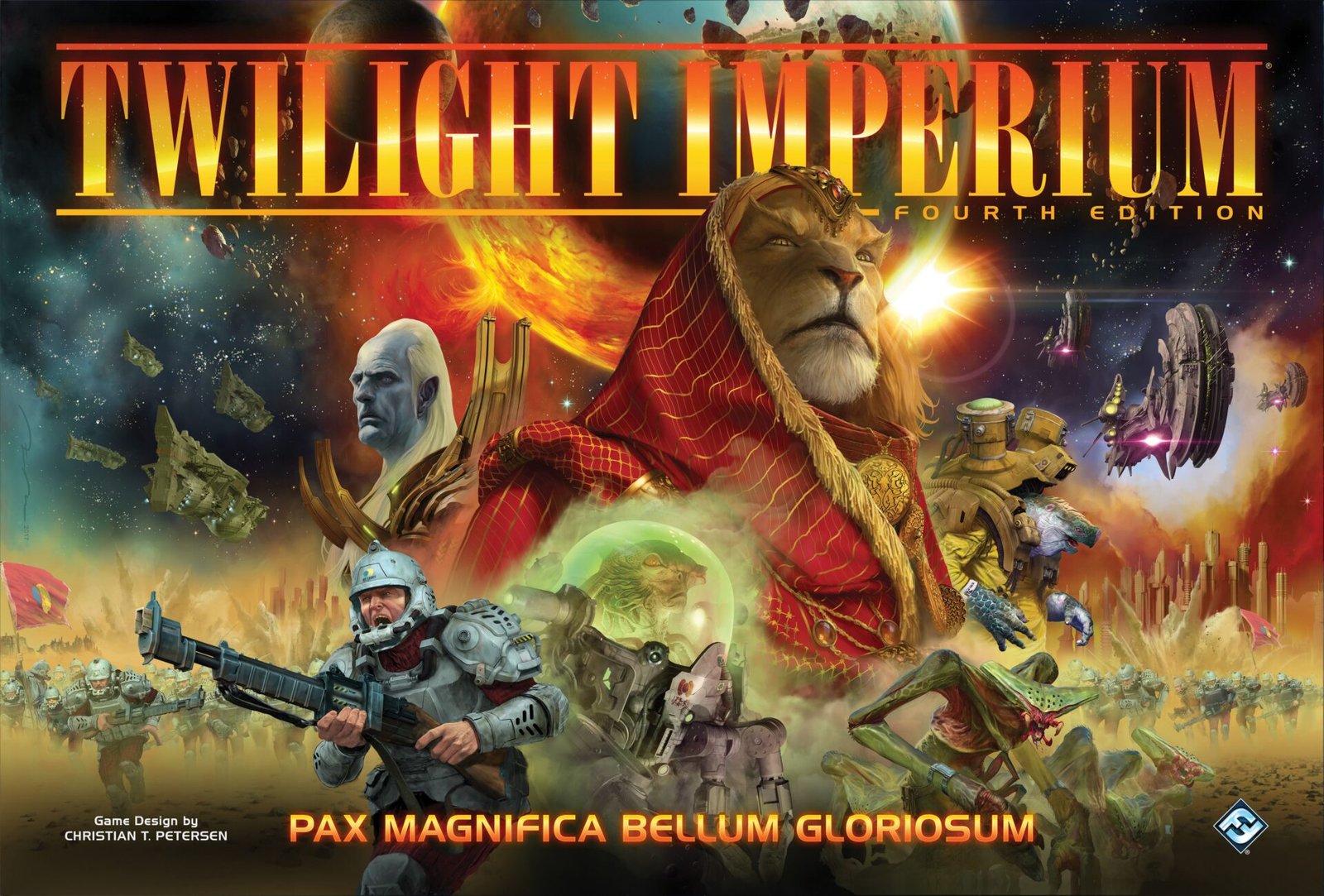
At number one, we have Twilight Imperium: Fourth Edition, a monumental game in the realm of space-themed tabletops. Released in 2017, this grand strategy game is renowned for its epic scale and complexity. Players are thrust into a sprawling galactic conflict, where they command vast empires, forge alliances, and engage in intricate diplomacy and warfare. The core mechanics of Twilight Imperium revolve around a combination of strategic planning, resource management, and dynamic combat. With its richly detailed galaxy map, players explore and expand their influence through a blend of political maneuvering, military conquest, and trade.
The reception among players has been overwhelmingly positive, particularly for those who relish deep, immersive experiences. Fans praise its intricate strategies and the sense of grandeur it imparts, despite its long playtime. The game’s ability to offer a unique experience each session, thanks to its numerous factions and evolving galaxy, ensures that Twilight Imperium: Fourth Edition remains a cornerstone of space-themed board gaming for dedicated enthusiasts.















